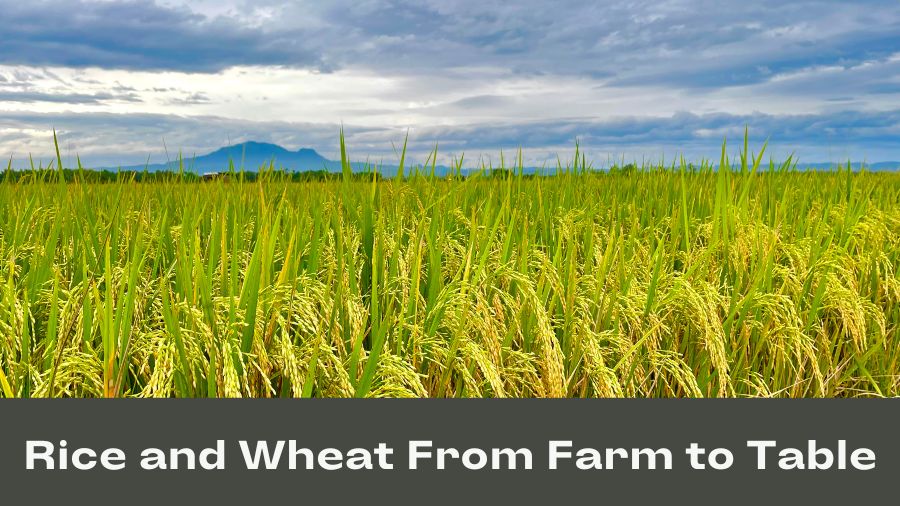Rice and Wheat Farming - Transforming the Agro Industry with Organic Methods
09 October, 2023

Rice and wheat farming have long been the backbone of the agro-industry, providing sustenance to billions across the globe. In recent years, however, this sector has undergone a transformation, with a growing emphasis on organic rice farming and sustainable wheat production.
The agro industry, encompassing rice and wheat farming, is a vital component of global agriculture. It contributes significantly to food security and the livelihoods of countless farmers worldwide. According to recent statistics, the agro industry accounts for a substantial portion of the global agricultural output, with wheat and rice being its cornerstone crops.
Wheat production has seen a notable surge in recent years. Data shows that wheat cultivation has expanded across various regions, driven by increasing demand for wheat-based products, such as bread, pasta, and cereals. This trend is indicative of the wheat farming sector's adaptability to changing market dynamics.
The diversity of rice varieties has always been a hallmark of this crop. From Basmati to Jasmine, rice varieties cater to diverse culinary preferences. Recent surveys highlight the continued popularity of aromatic rice varieties, suggesting an enduring demand for quality rice in the global market.
One of the most significant shifts in rice farming is the growing interest in organic practices. Organic rice farming not only emphasizes environmental sustainability but also offers health-conscious consumers a chemical-free alternative. Recent market research indicates a steady increase in the production and consumption of organic rice.
Analyzing market trends reveals several key insights. The demand for wheat products is projected to increase further as the global population continues to grow. Additionally, the rice market is witnessing a shift toward specialty and organic rice varieties, presenting lucrative opportunities for farmers and agro-industry stakeholders.
The shift towards sustainability is not limited to organic rice farming alone. In both rice and wheat farming, sustainable agriculture practices are gaining traction. This includes reduced chemical usage, water conservation, and crop rotation, all aimed at preserving the environment and ensuring long-term productivity.
In this era of consumer awareness, product sourcing plays a crucial role. Consumers are increasingly concerned about the source of their food. Therefore, supply chains are adopting stringent quality assurance measures to maintain the integrity of rice and wheat products, reassuring consumers of their safety and quality.
As we move forward, the agro industry is poised for further transformation. Organic rice farming and sustainable wheat production are not just trends; they are integral to the future of agriculture. Embracing these changes will not only benefit the environment but also ensure the long-term prosperity of the agro industry.
Rice and wheat farming are undergoing a significant evolution, driven by consumer preferences, environmental concerns, and market dynamics. The agro industry is adapting to these changes, fostering a promising future where organic farming practices, diverse rice varieties, and sustainable wheat production coexist harmoniously, ensuring a steady supply of essential grains for generations to come.
